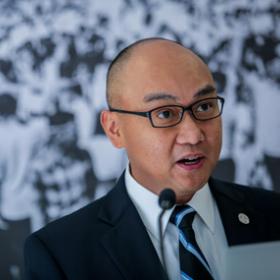
Is the Philippines’ Pro-China Policy Working?
To the extent that his words matter and policy has followed suit, President Rodrigo Duterte has tried to engineer a dramatic pivot in the Philippines’ foreign policy. Early in his administration, he antagonized traditional economic and political allies like the United States (then under President Barack Obama) and later the European Union (due to its calls to respect human rights in the midst of the Philippine government’s campaign against illegal drugs). Duterte also promptly initiated a rapprochement with China, and most recently he even began discussions of possible joint exploration of the resources in the West Philippines Sea (Manila’s name for the part of the South China Sea it claims). Duterte claimed all of this is part of an effort to build a more “independent” foreign policy for the country.
There are mixed views on whether and to what extent the country has achieved a truly independent foreign policy, yet one can credit the Duterte administration for its audacity. The Philippines’ relationship with China—even given the territorial disputes—could still be a fruitful one, economically. One question, however, is whether this approach has necessarily yielded more economic benefits for the country.
This brief analysis outlines a surprising trend in terms of the country’s evolving relationship with China—more inflows of tourists and workers, yet still very little by way of investments and trade. These trends raise both opportunities and risks from an economic development and national security perspective.
Click here to read the full article on The Diplomat.

